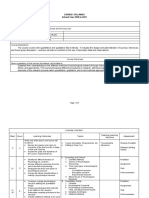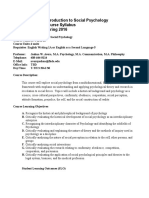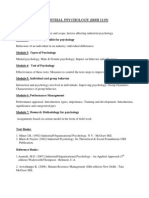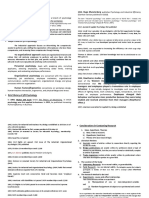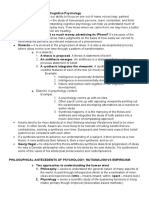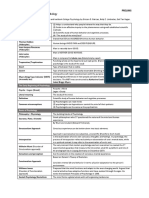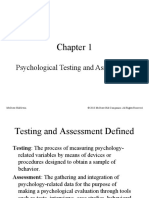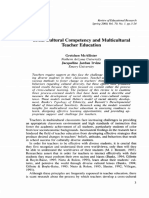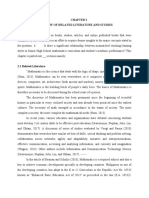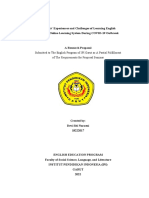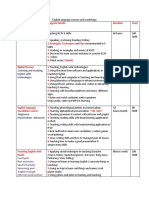100% found this document useful (2 votes)
2K views8 pagesField Methods in Psychology
This document is a course syllabus for Psychology 95.1 (Field Methods in Psychology) being offered in the first semester of the 2021-2022 academic year at Central Mindanao University. It provides information on the course's vision, mission, goals and learning outcomes which are aligned with the Bachelor of Science in Psychology program. The syllabus outlines the course content, topics, learning activities, assessment tasks and references. It was prepared by the instructor, Rudjia Faith T. Anino, and approved by the Chair of the Department of Behavioral Sciences and the Dean of the College of Arts and Sciences.
Uploaded by
Emelita BaulCopyright
© © All Rights Reserved
We take content rights seriously. If you suspect this is your content, claim it here.
Available Formats
Download as DOCX, PDF, TXT or read online on Scribd
100% found this document useful (2 votes)
2K views8 pagesField Methods in Psychology
This document is a course syllabus for Psychology 95.1 (Field Methods in Psychology) being offered in the first semester of the 2021-2022 academic year at Central Mindanao University. It provides information on the course's vision, mission, goals and learning outcomes which are aligned with the Bachelor of Science in Psychology program. The syllabus outlines the course content, topics, learning activities, assessment tasks and references. It was prepared by the instructor, Rudjia Faith T. Anino, and approved by the Chair of the Department of Behavioral Sciences and the Dean of the College of Arts and Sciences.
Uploaded by
Emelita BaulCopyright
© © All Rights Reserved
We take content rights seriously. If you suspect this is your content, claim it here.
Available Formats
Download as DOCX, PDF, TXT or read online on Scribd
/ 8

